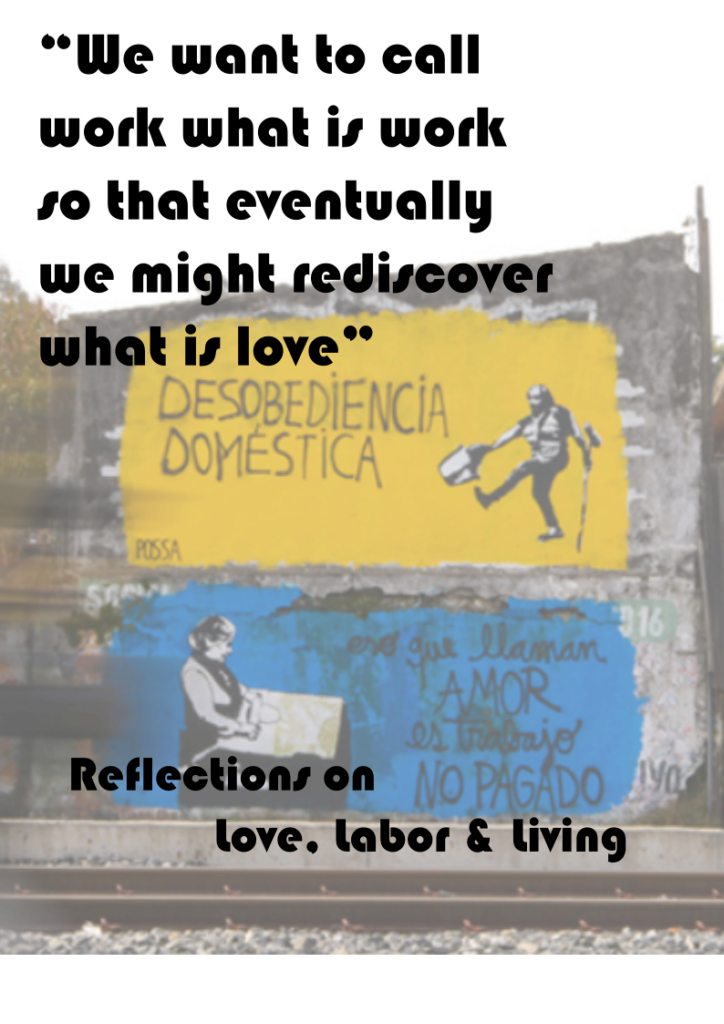
Category Archives: Uncategorized
Some quarantine maps
Here we share some of the maps we received from our call for quarantine maps (and we are always open to receiving more!) and highlight a few themes that appeared:
- geographies of fear & anxiety: where and who are we afraid of, where does contagion come from?
- remaking the home (the entire home becomes school, workplace, restaurant, entertainment center, production & reproduction intermix)
- time: stuck between monotony and boredom and an absolute lack of time/overwork/multitasking, watching children/working/cooking/zooming all at once!
- new geographies of debt & extraction: who profits off of us being stuck at home?
- new geographies of mutual aid, care, and resistance in our neighborhoods and beyond!
- geographies of differences: despite claims that “we are all in this together,” we experience the pandemic differently based on how we are positioned in relations of exploitation & oppression, how certain governments responded (or didn’t) to the pandemic, our access to care, etc.
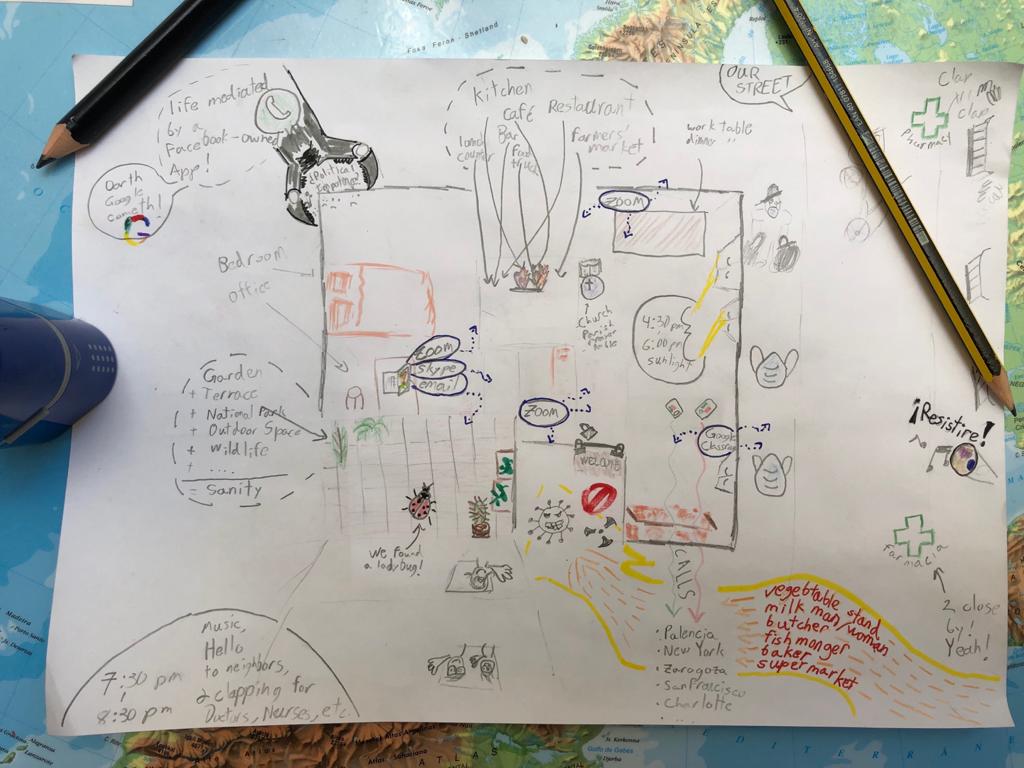
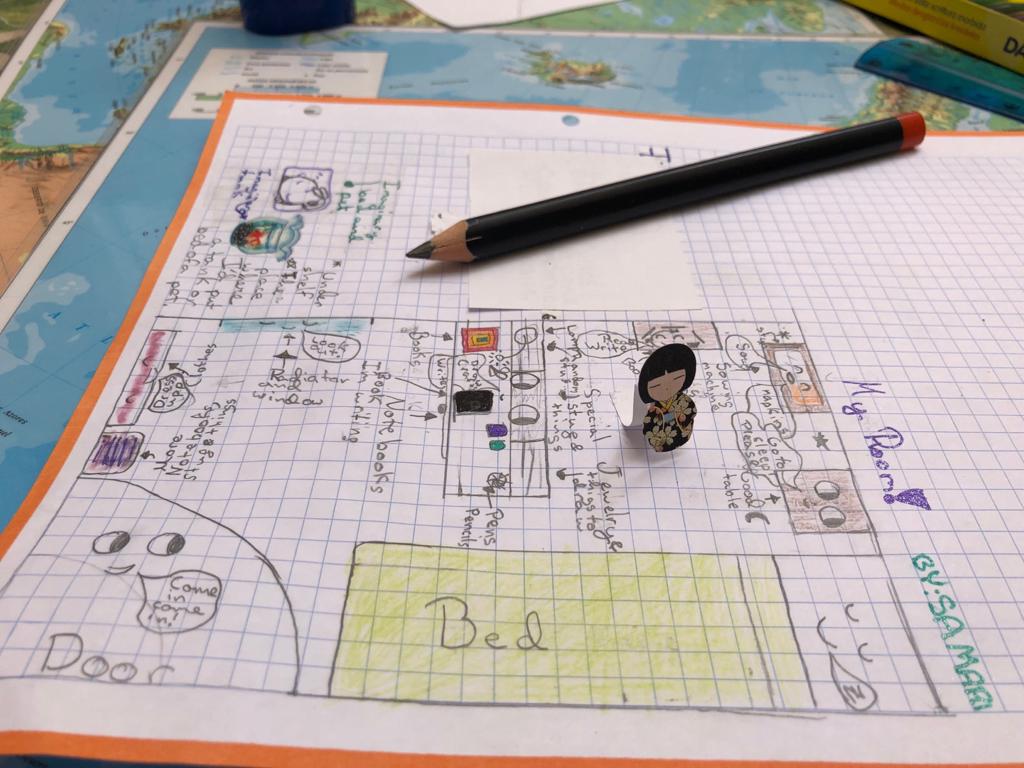
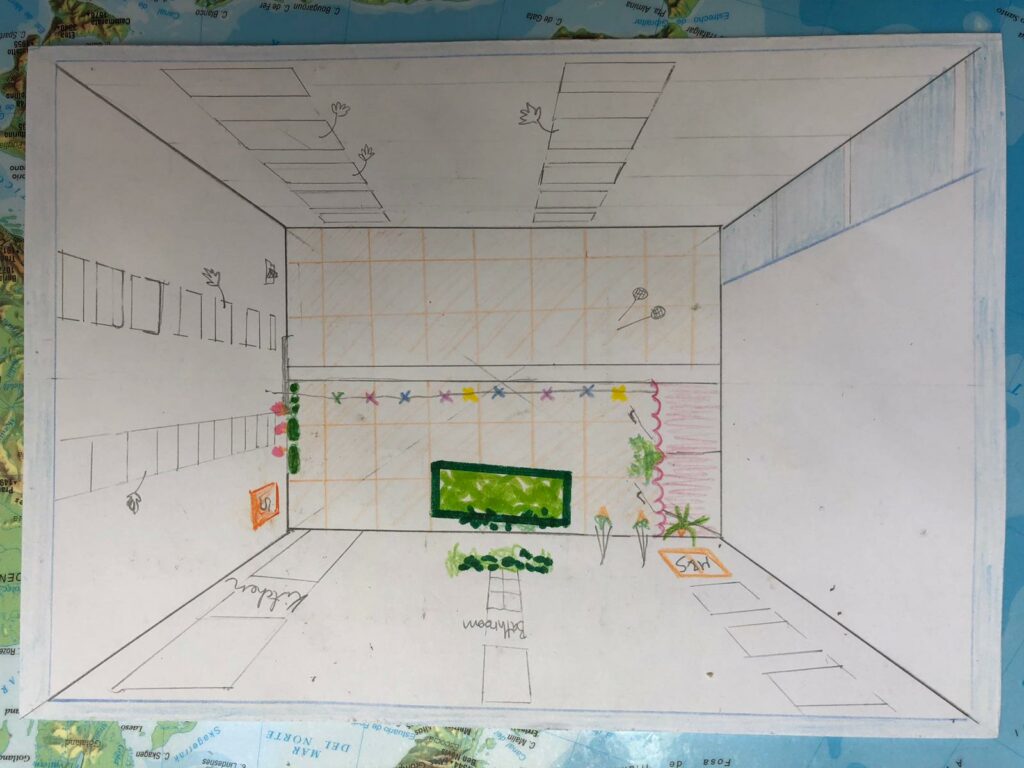
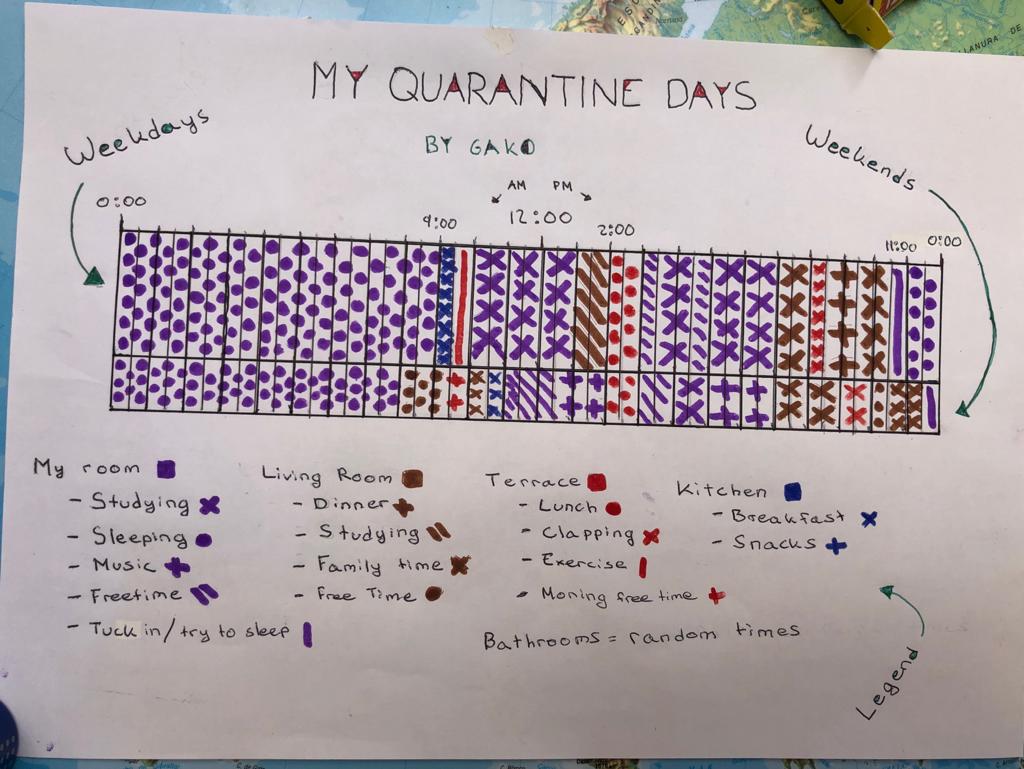
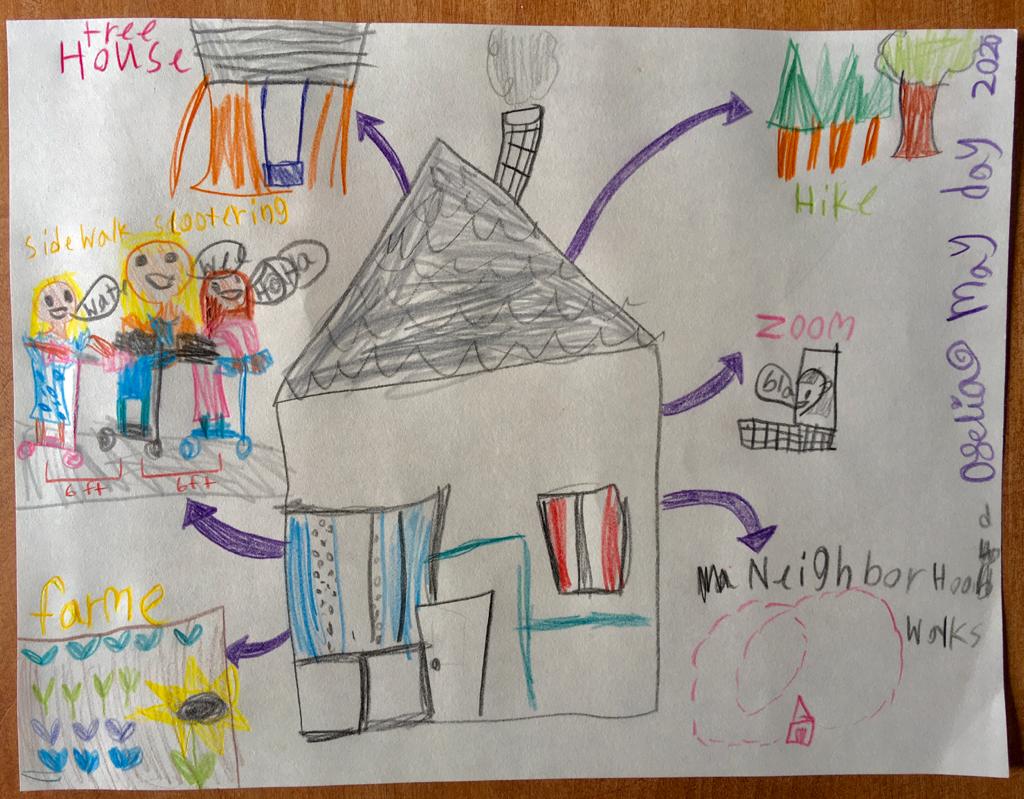
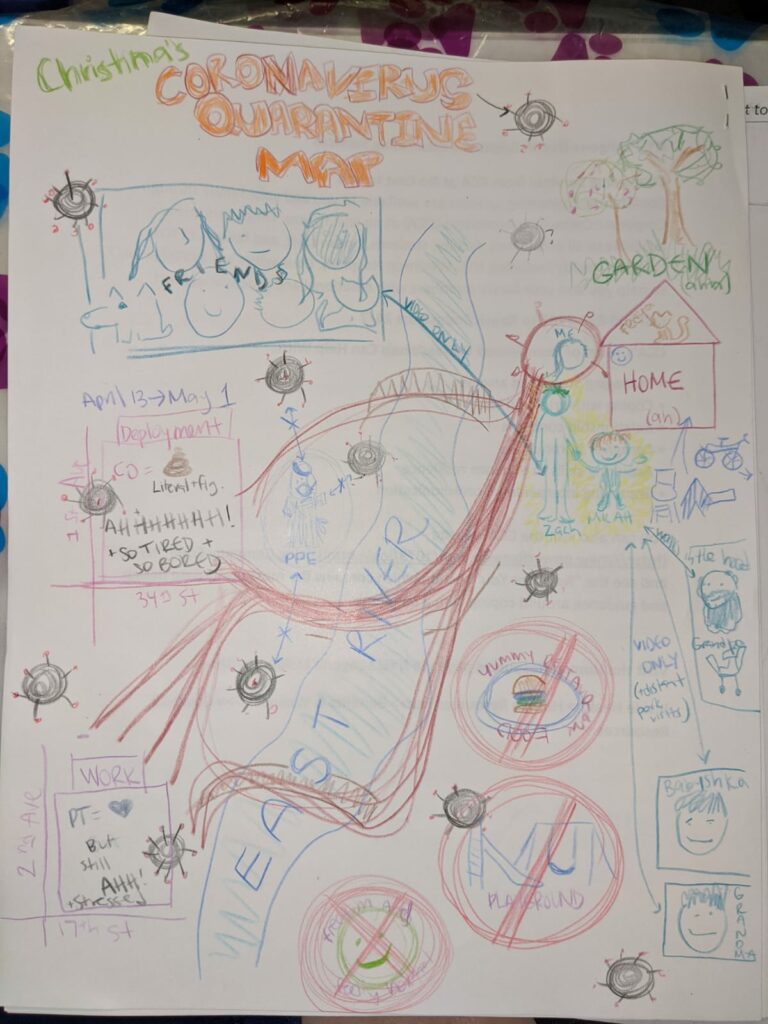
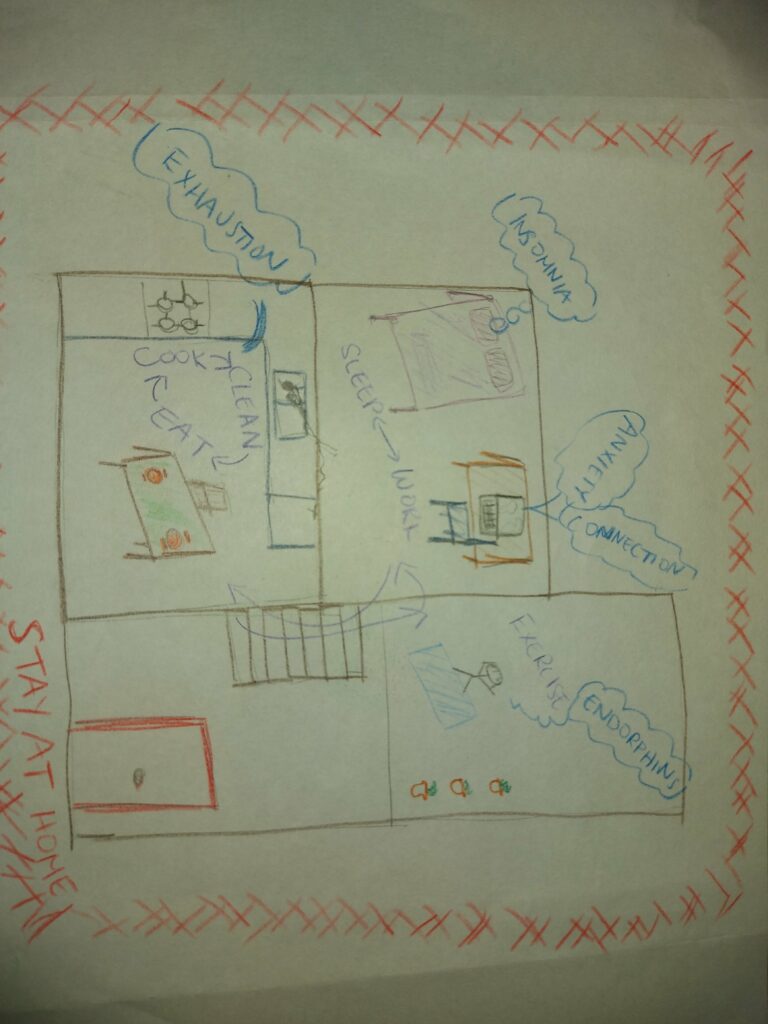

A Call to Action in Support of the Zapatistas
Join 3Cs in signing the call here and find out about events near you.
SUMMARY OF RECENT EVENTS:
On May 2, 2014, in the Zapatista territory of La Realidad, Chiapas, Mexico, the group CIOAC-Histórica [with the participation of the Green Ecological Party and the National Action Party (PAN)], planned and executed a paramilitary attack on unarmed Zapatista civilians. An autonomous Zapatista school and clinic was destroyed, 15 people were ambushed and injured and Jose Luis Solis Lopez (Galeano), teacher at the Zapatista Little School, was murdered. The mainstream media is falsely reporting this attack on the Zapatistas as an intra-community confrontation, but in fact this attack is the result of a long-term counterinsurgency strategy promoted by the Mexican government.
Given the experience of the 1997 massacre at Acteal, we are concerned about the mounting paramilitary activity against Zapatista bases of support. It is clear that if we do not take action now, the current situation in Chiapas may also lead to an even more tragic end.
Continue reading
Mashing-up Maps: Google Geo Services and the Geography of Ubiquity
A dissertation by Craig Dalton under the direction of Scott Kirsch.
(also available at: http://gradworks.umi.com/3526116.pdf)
How are Google geo services such as Google Maps and Google Earth shaping ways of seeing the world? These geographic ways of seeing are part of an influential and problematic geographic discourse. This discourse reaches hundreds of millions of people, though not all have equal standing. It empowers many people to make maps on the geoweb, but within the limits of Google’s business strategy. These qualities, set against the state-centeredness of mapmaking over the last six hundred years, mark the Google geo discourse as something noteworthy, a consumer-centered mapping in a popular geographic discourse. This dissertation examines the Google geo discourse through its social and technological history, Google’s role in producing and limiting the discourse, and the subjects who make and use these maps.
Convergence 2012: The Geo/Body Politics of Emancipation
3Cs will be participating in the Hemispheric Institute Convergence in November. Deadline to apply to a working group is July 1!
Call For Participation
The year 2011 marked an explosion of radical mobilization, from student protests and occupations to uprisings and insurrections. These events were characterized by the embodied reclaiming of public space, demands for economic, social, and political change, and instrumentalization of technology to communicate, organize, and revolt. As these political struggles spread globally, artists, activists, and scholars have engaged and responded to these actions by generating militant research practices, radical art gestures, and networked communities.
The Hemispheric Institute of Performance and Politics Graduate Student Initiative invites graduate students from the humanities, arts, and social sciences to come together for our Convergence 2012 to discuss contemporary notions of emancipation, liberation, revolution, occupation, geopolitics, “artivism,” and militant research, and to consider the lived tensions of these concepts in bodies, knowledge, and locations.
In the spirit of the Hemispheric Institute Encuentros, Convergence 2012 intends to bring together about 100 participants to generate a space of intensive connections between scholarship, artistic expression, and politics, promoting embodied practices — performance — as a vehicle for the creation of new meaning and the transmission of cultural values, memory and identity. During the three days of Convergence 2012, we aim to explore new political potentials for emancipation, liberation, and revolution.
Invited Speakers and Artists include: Andy Bichlbaum (The Yes Men), Colectivo Situaciones (Argentina), Counter-Cartographies Collective (Durham NC), Ricardo Dominguez (UCSD), Esther Gabara (Duke University), Macarena Gómez-Barris (USC), Jack Halberstam (USC), Michael Hardt (Duke University), Brian Holmes (activist), Josh Kun (USC), Pedro Lasch (Duke University), Diane Nelson (Duke University), Walter Mignolo (Duke University), Spirithouse (Durham NC), Diana Taylor (NYU), and Wu Tsang (performer/filmmaker)
A very rough draft of an animated Occupy movement map for the US
The participants in a self-organized Counter-mapping workshop I’m helping to facilitate at UNC-CH have chosen to work on mapping the occupy movement as our class project for the semester. So far, we’ve used the project to learn about data gathering, GIS data design, and basic mapmaking using ArcGIS. Here’s what we produced together after our first class session together on ArcGIS! Data for the Southeast is missing because the member of our class who was responsible for that data-gathering hasn’t finished it yet.
This is just a draft for now — let us know what you’d like to see in the finished version!!!
Other ideas are to incorporate a word/quote cloud of slogans from the different protests, or quotes from mayors in different cities responding to the Occupy movement.
3Cs fights ‘studentification’ in Chapel Hill
Local folks will remember the fights, several years ago, over the construction of Greenbridge — a “LEED-certified” monstrosity built right on top of one of Chapel Hill’s few remaining black business districts. When the shovels first broke ground on that building, I had pretty much lost hope that anything could be done to stop the tidal wave of greenwashed capital that was transforming Chapel Hill into a playground of condos and boutiques.
How things have changed!
For the past year or so, we @ 3Cs have been working with folks from UNC-NOW (a student-neighborhood alliance) and the Marian Cheek Jackson Center for Saving and Making History to figure out how counter-mapping could be useful to the continuing struggles of residents of Northside and Pine Knolls. Northside and Pine Knolls are two of the remaining historic African-American neighborhoods in CH; more appropriately they’re the only names left for a cluster of historic neighborhoods on the W edge of Chapel Hill.
3Cs visits Middlesex Occupation
Liz and Tim had the strange luck of being the last folks allowed inside occupied Trent Hall on the Middlesex University campus yesterday before the police served a final trespassing injunction. The occupation ended peacefully today around 5 PM, but the campaign to save Middlesex’s philosophy department continues.
3Cs in London
\\\\///\\ Counter/Mapping QMary ////
////////////////\\\////////the university and border technologies
To begin by asking <what is the university> requires an investigation of the function of the university not only as a knowledge factory but also as a border. Our investigation of what the university produces as knowledge, hierarchies and power exposes the border/s that operate in, on and around the university. That <the university is a border> is made possible by the operation of a filter mechanism. The counting of bodies, money in and money out, who can and can not enter, what are we when we leave, the limits of what is and is not knowledge and the complicity with national and global border regimes – who and what is stopped at the border?
—
A group of students, staff and researchers at Queen Mary University have set out to map the ways in which migration, border technologies, surveillance and monetary flows intersect with the university as our place of work and study. Joining us in the project are the <Counter-Cartographies Collective from the University of North Carolina>, who will help to explore the dynamics and possibilities of mapping as method and action.
—
From Thursday 13 May – Monday 24 May we will gather to discuss, research and take action to produce a counter map of Queen Mary University. As part of our practice we will be facilitating <three public workshops> to expand the participation and possibilities of the project. These workshops as well as the counter mapping production process are open to all who are interested and are free to attend – please see below for the programme and contact details. The venue for all events will be room 4.08 in the Francis Bancroft Building of Queen Mary Campus and is accessible.
//////Thursday 13May, 2pm
\\\\\\\\\\Imaginaries of the university
The Counter-Cartographies Collective will present their work on the neo-liberal university and discuss their maps, methodologies and actions. This session will address our imaginaries of the university – current and potential – and will conclude with a drift around QM campus.
\\\\\\\\Thursday 20May, 2pm
//////////How to make a counter-map
The Counter-Cartographies Collective will facilitate a workshop on radical collaborative mapping skills using available open source mapping software and web-based data-mining techniques. Free and open to all, email us to register.
///////Monday 24 May, 4pm
\\\\\\\\\\\The politics and potential of counter-mapping
In this event, Counter/Mapping QMary project will present their map of Queen Mary. This presentation will be followed by an open discussion of the methods and politics of mapping the university as a site of migration, education and labour struggles. Invited interlocutors: The Students not Suspects Campaign (Goldsmiths), No Cuts at Queen Mary Campaign, Jane Wills, David Pinder, Ishani Chandrasekara, Miguel Mellino, John Hutnyk, Alberto Toscano
//Contact
Counter/Mapping QMary
countermapping.qmary(@)googlemail.com
Facebook: countermapping qmary
\The Counter/Mapping QMary project is generously supported by the School of Business and Management and the Geography Department at Queen Mary University.
map: http://www.qmul.ac.uk/about/campus/mileend/index.html#map
NC Rising! a conference on self-determination, chapel hill
www.ncrising.ingo
we wanted to share with y’all a couple of our impressions from the workshops at NC RISING! we were able to attend thanks to the very well organized daycare service at the conference:
2 hours workshops:
RADICAL MAPPING: nice turn out, around 50 people in a packed classroom in Saunders.
after a well crafted power point on 3cs work and other cartographic projects, people were interested in the nitty gritty steps of mapping and also in its theoretical underpinnings, bringing Foucault’s famous pair of knowledge/power several times in relationship to cartography. one of the interventions spoke about squatters in Brasil using GIS…3cs gave some hints about how to use local government websites to identify vacant buildings
OCCUPY EVERYTHING: the panelists represented the recent university occupations in New School of NYC and San Francisco State College as well as the monthly Really Really Free Market in Carrboro.
just listening to the histories of each of this struggle was worthwhile. also, among all of them, and together with interventions from the packed room in Bingham Hall, we got a kind of working definition of occupation that might be useful.
occupation, whether of a campus building, a forest, a house, a multi-story building, a construction site…. whether using chains, barricades, dance parties, exchange of goods, etc… might be understood as:
-experience of possibility
-experience of affinity and solidarity
-experience of transcending well established identities and defined roles
-the creation of a public space outside of capitalist logic
-a reference point that speaks stronger than other kinds of propaganda
-the feeling that something else, different from the norm, works
it was interesting to see that curious crowd and all the buzzing activity taking place at saunders and bingham hall, the quotidian spaces we go through on an everyday basis were temporarily transformed into a anarchist bookfare, anti-capitalist workshops and childcare service….in a way, the conference was an occupation of sorts in itself : )

